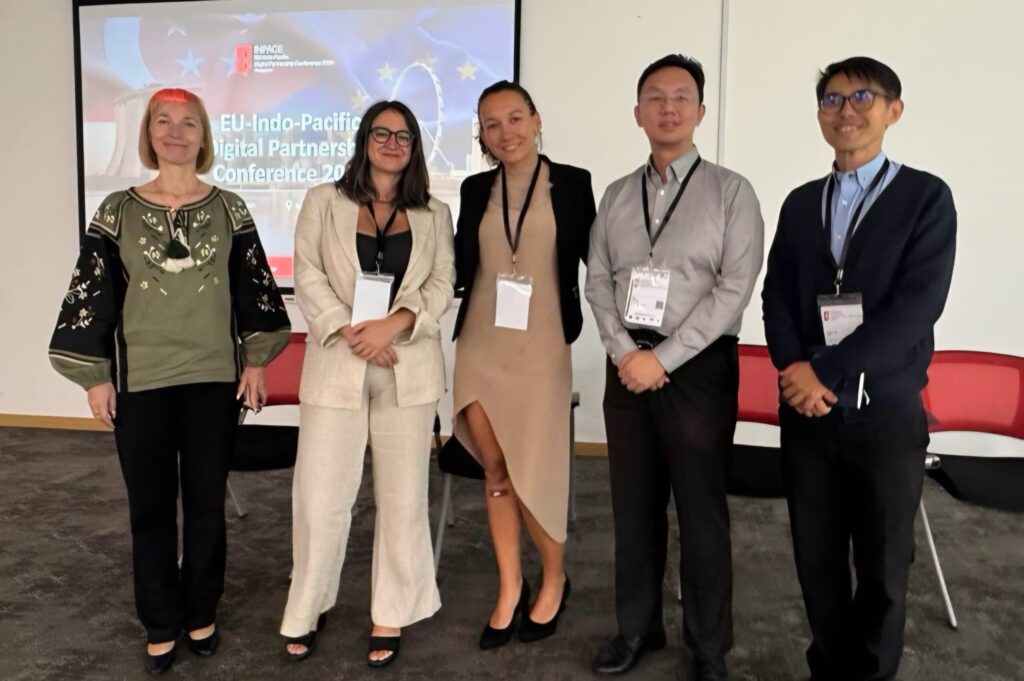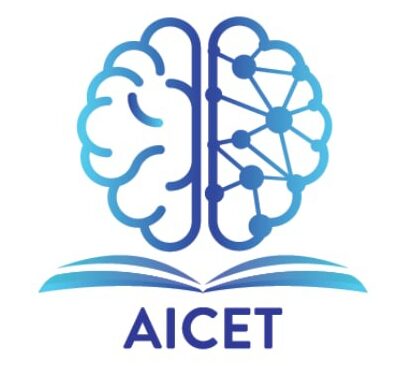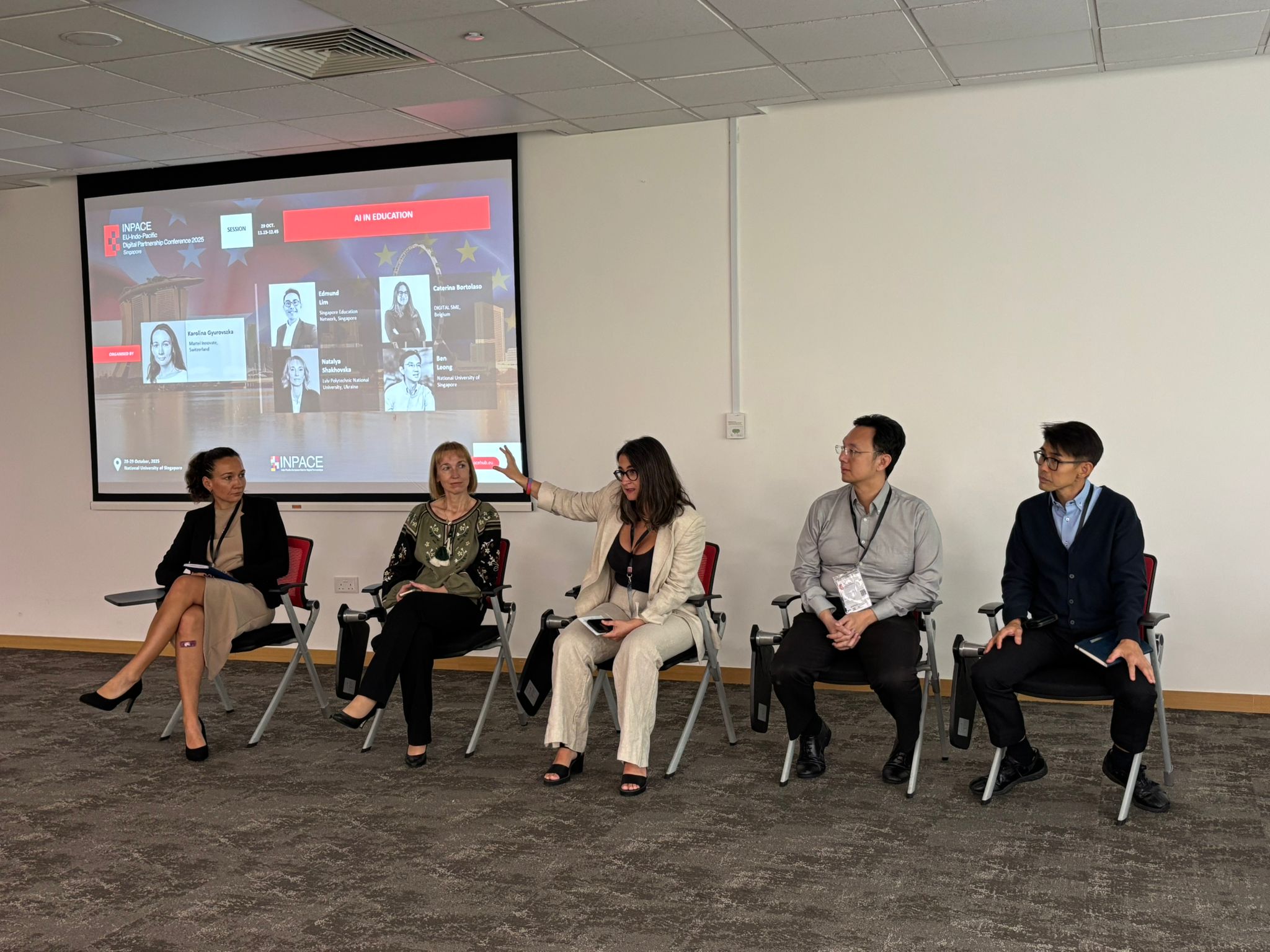29 October 2025 — The EU–Indo-Pacific Digital Partnership Conference 2025 spotlighted the future of learning and workforce readiness with a session on “AI in Education: Bridging the Skills Gap through EU–Indo-Pacific Collaboration”, led by Martel Innovate policy expert Karolina Gyurovszka. The discussion examined how artificial intelligence is reshaping teaching, research, and assessment, and identified areas where cross-regional cooperation can accelerate AI skills development.
Drawing on the results of a global survey conducted through the INPACE project across Europe, Japan, India, South Korea, and Singapore, the session brought together diverse perspectives to explore shared challenges and emerging opportunities for global collaboration in the age of AI.
Panelists brought multi-regional perspectives to these challenges and opportunities:
- Edmund Lim of the Singapore Education Network outlined Singapore’s approach to empowering teachers through the EdTech Master Plan 2030, the Student Learning Space (SLS) digital ecosystem, and the AI tutor Akami. He emphasised that “people, platforms, and professional development” form the essential pillars of sustainable AI integration.
- Caterina Bortolaso from the European DIGITAL SME Alliance presented Europe’s evolving AI Skills Strategy and the work of ARISA, highlighting regulatory barriers that still limit broader international cooperation.
- Professor Natalya Shakhovska of Lviv Polytechnic National University spoke of engaging students in real-world AI innovation, particularly around deepfake detection and dual-use tech, all within a national ethical framework.
- Professor Ben Leong of AICET, National University of Singapore stressed that AI adoption is a pedagogical challenge, not just a tech one. Through the platform Scholastic, his team explores “agentic learning” — using AI to guide, not replace, student inquiry.

Across interventions, speakers highlighted practical pathways for impact. In classrooms, adaptive tutoring, personalised feedback, and learning analytics can support differentiated instruction. In research, AI can streamline literature reviews, data analysis, and simulation. For assessment, authentic, project-based tasks complemented by timely AI-enabled feedback can strengthen integrity and relevance.
The session also surfaced constraints that demand coordinated solutions. Data protection and GDPR-compliant deployments, interoperability for cross-border collaboration, and model quality and bias mitigation were cited as persistent hurdles. Without deliberate support for infrastructure and training, participants warned, AI could widen existing digital divides.
By bringing together perspectives from Europe and the Indo-Pacific, the session underscored the value of collaborative frameworks to share best practices, align standards, and co-develop scalable solutions. As education systems navigate rapid AI advances, the panel’s consensus was that thoughtful, pedagogy-led integration—supported by policy, ethics, and international cooperation—will be central to preparing learners for the future.


Leave a Reply